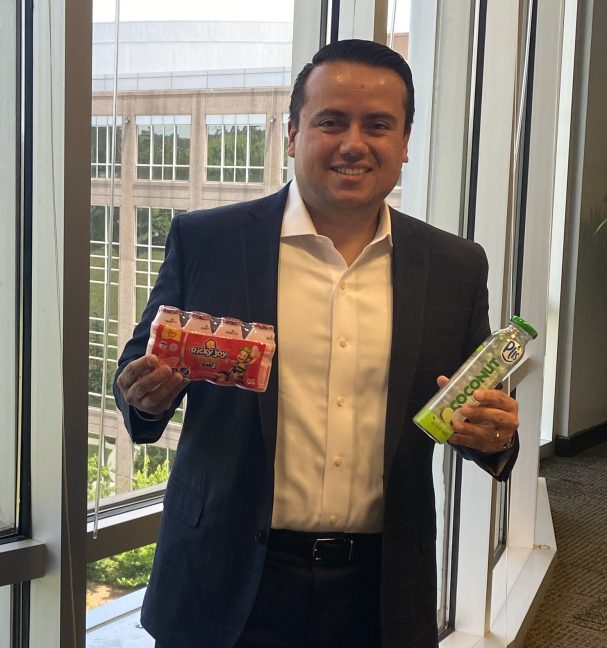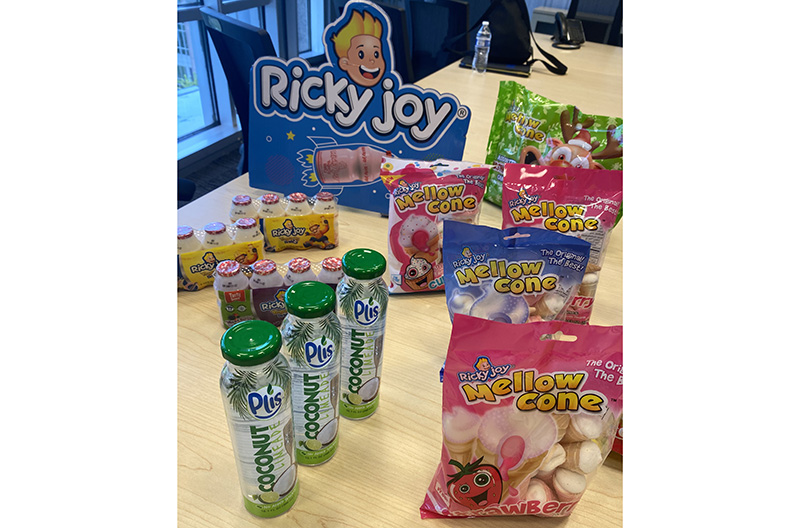Colombian entrepreneur Julio Bayona wanted to create a product for kids of all ages and ethnicities. Coming from a background of focusing on Latino-centered retailed ventures, he founded Alpharetta, Georgia-based the Ricky Joy Company with that in mind.

“We had a dream to be mainstream,” Bayona said in a recent interview with The Shelby Report of the Southeast. “That’s why with the name Ricky Joy and the packaging and branding…it doesn’t speak Latino. It speaks mainstream. Because we say our products are created for kids and it doesn’t matter where they are from.”
Starting in 2007, the company has grown its product lines in three main categories – drinks, candies and jellies. A product must meet three criteria before reaching store shelves.
“It has to be innovative. It has to be delicious. It has to be fun,” Bayona said.
Even if the product itself is an established one, such as the brand’s jelly gummies, the packaging must be what entices the consumer.
“It’s packaging. That’s the way we present it to the customer. It has to be innovative. It’s fun and it is much better. But the difference is the way we present it,” Bayona said.
Business was steady in the U.S. and European markets prior to the COVID-19 pandemic. Then, due to some fortunate timing – including a TikTok challenge featuring its jello shots that went viral – the company’s growth skyrocketed.

“Right before the COVID-19 pandemic hit, we were going through a challenging time. That made us kind of rearrange everything and say, ‘OK, we need to change the way we’re doing things,’” Bayona explained. “We were already kind of very well prepared. We were ready. We were very organized and we had inventory. It was in some ways good for us because many suppliers didn’t have products.
“Our operations team was doing a fantastic job getting the product where it needed to go. We were able to enter new markets and meet those new customers that we didn’t have before.”
In the first year of the pandemic, the company saw a sales increase of more than 40 percent. The second year, that grew to over 100 percent, according to Bayona.
“COVID-19 basically exploded the company and put it in so many places,” he said.
Ricky Joy has now set its sights on bringing production closer to home. Under the current setup, that is handled on a contract basis at seven plants across six countries.
Bayona said the company is building a production facility in Georgia that should open “within the next year.” The goal is to produce at least 50 percent of the company’s inventory there. There are also plans to purchase a plant in Colombia that will allow for “more control over the whole process.”
“The business model is changing,” Bayona said. “We’re focused on developing our own production capabilities a bit closer to home. There are many other things we have planned once we get past this place where we are now.”
Bayona hopes to expand his inventory to include a greater variety of flavors across all of Ricky Joy’s products. Most recently, the company debuted another brand under the same manufacturing umbrella, Plis, which is a coconut water-based lemonade drink. It can be found in 40 states at retailers such as Walmart and Kroger.
For more information, visit rickyjoy.com.

